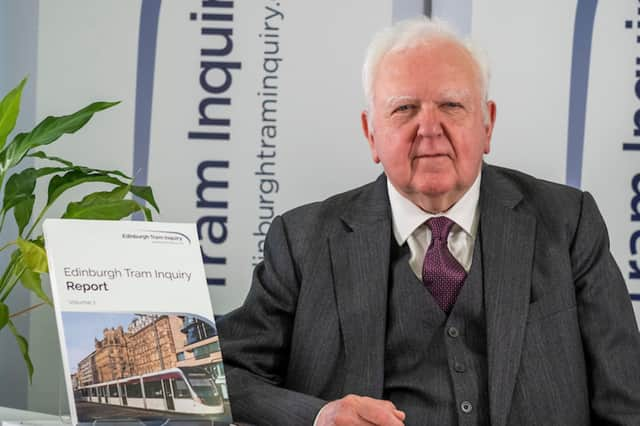Council’s code of conduct needs beefing up after Hardie Inquiry - John McLellan


But if you find yourself accused of breaking the rules, then it’s not unreasonable to ask which one you have transgressed.
Why this is important is because at last week’s full council meeting, a Conservative call to make a duty of candour a contractual obligation for all officers in the wake of the Hardie tram report was instead watered down to a request for chief executive Andrew Kerr to “provide assurance that there are robust arrangements in place to deal with allegations of breaches of the Employee Code of Conduct”.
Advertisement
Hide AdAdvertisement
Hide AdLord Hardie’s report made serious allegations against Edinburgh Council’s head of legal services, Nick Smith, particularly that he inserted a sentence in a report which “did not reflect what he believed at the time.” Allegedly misleading councillors in this way, said Lord Hardie, “is inconsistent with the standards expected of officials and solicitors within a local authority.”
So, what does Edinburgh Council’s Employee Code of Conduct have to say about officers allegedly misleading councillors? The answer is nothing.
Therefore, if you were being very lawyerly, which lawyers like Mr Smith tend to be, you would be entitled to claim that as there is no specific regulation surrounding the composition of reports, you cannot be accused of breaking a rule which doesn’t exist.
You would further argue that you may have made a mistake but did not do so with the intention of harming the authority, that you honestly believed you were acting in the council’s best interests, and you certainly gained no material benefit from the apparent misinformation.
Edinburgh’s Code of Conduct point to the Seven Principles of Public Life, identified by Lord Nolan in 1995 ─ selflessness, integrity, objectivity, accountability, openness, honesty and leadership ─ but Edinburgh’s interpretation of honesty refers only to declaration of private interests and the use of council equipment and resources.
In the light of events, it seems obvious this needs tightening, but last week’s vote does not instruct the Chief Executive to do so. Maybe he will ─ and Conservative group leader Iain Whyte accepted the change to his amendment in the hope it will be addressed ─ but the question is why did it have to be diluted in the first place?
Why was it so important for council leader Cammy Day to sidetrack a specific move to make misleading councillors in reports an unequivocal breach?
Apart from the Conservative group, it was remarkable how little councillors had to say about the Hardie Report, apart from Cllr Day and the transport convener Scott Arthur using it as an opportunity to extol the tram system’s virtues, and by extension their own.
Advertisement
Hide AdAdvertisement
Hide AdIt was also fine for them to praise the senior officer who led the Newhaven completion project, Hannah Ross, and indeed Ms Ross does appear to be highly competent, but any reference to Mr Smith was off limits because of restrictions imposed by the councillors’ conduct code.
Such bans and the requirement for all councillors to protect the council’s reputation are an unacceptable infringement on all councillors’ right to freedom of expression and make a mockery of accountability.
You elect councillors to serve you, not the officials. Or so you thought.
Comments
Want to join the conversation? Please or to comment on this article.
